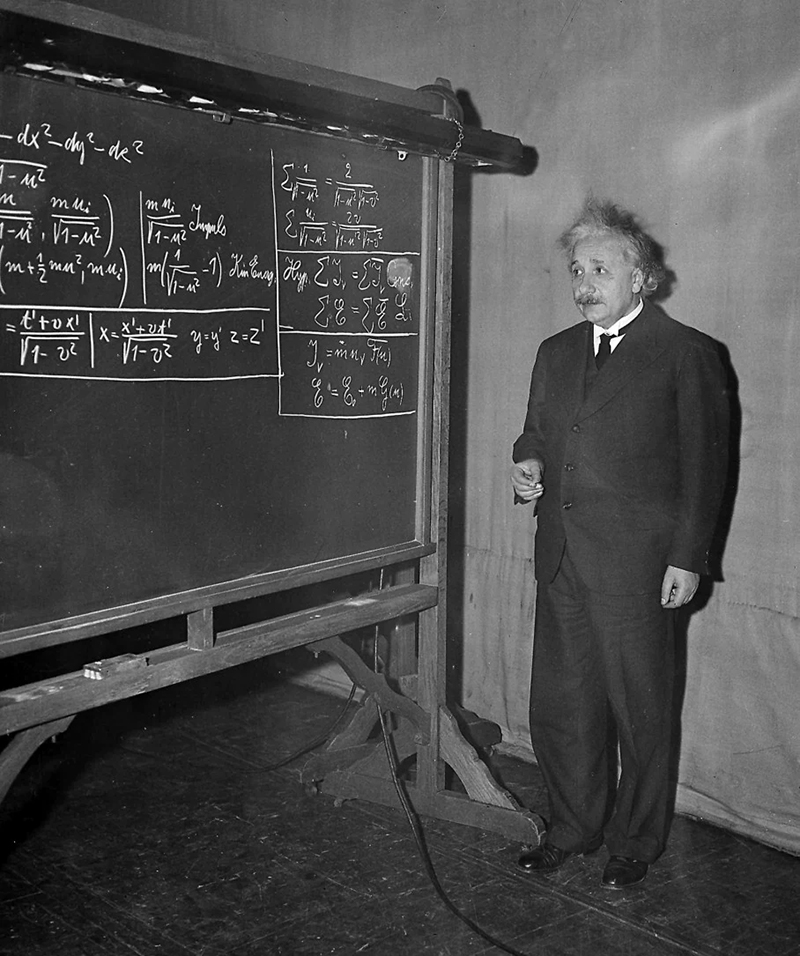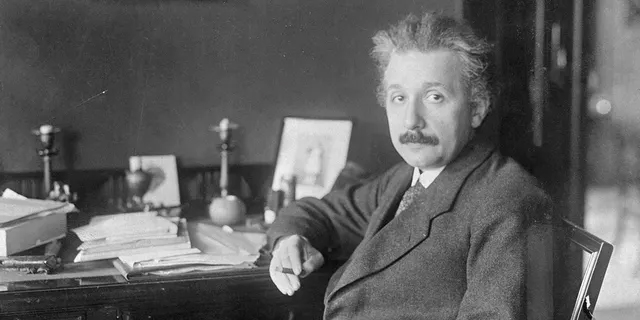His theory of relativity disrupted centuries of “established science,” paving the way for a new era of advancement.

On March 14, 1879, physicist Albert Einstein was born into a prominent Jewish family in Ulm, Germany. His groundbreaking theory of relativity upended centuries of settled science and paved the way for a new era of human achievement. Today, Einstein’s name is synonymous with “genius” in American English and many other cultures, a testament to his unrivaled impact on global popular culture. According to his Britannica biography, Einstein credited two “wonders” for shaping his early years.
Today, Einstein’s name is synonymous with “genius” in American English and many other cultures.
“The first of these wonders was his encounter with a compass at age five, where he was mystified by the concept of invisible forces that could deflect the needle. This experience led to a lifelong fascination with invisible forces. The second wonder occurred at age 12 when he discovered a book of geometry, which he devoured, referring to it as his ‘sacred little geometry book,'” according to his Britannica biography.
Einstein’s parents, Pauline (Koch) and Hermann Einstein, were educated professionals who were both born and raised in what is now the German state of Baden-Württemberg.

At a young age, Pauline, a musician, encouraged Albert to play the violin. Meanwhile, Hermann co-owned an electrical engineering company with his brother Jakob. The Einstein brothers were also responsible for illuminating the renowned Oktoberfest celebration in Munich, Bavaria, for the first time in 1895, among other accomplishments.
Albert Einstein’s family moved to Munich shortly after his birth in Ulm, Germany. After his father’s business failed, the family moved around Europe, eventually settling in Switzerland where Einstein continued his education. As the Nobel Foundation notes, “In 1901, the year he gained his diploma, he acquired Swiss citizenship and, as he was unable to find a teaching post, he accepted a position as technical assistant in the Swiss Patent Office. In 1905, he obtained his doctor’s degree.”
Despite not being well-known in the science establishment at the time, Einstein quickly gained worldwide recognition with his groundbreaking theory of relativity. As the theory uprooted centuries of settled science, he exploded onto the world stage in a way that is still unmatched by any scientist to this day.
NASA declared, “The year 1905 will forever be regarded as Albert Einstein’s ‘miracle year'”
In 2005, on the centennial celebration of his theory of relativity, NASA declared, “The year 1905 will forever be regarded as Albert Einstein’s ‘miracle year'”. It was then that a 26-year-old Einstein revolutionized our understanding of the universe with his groundbreaking theories about light, motion, gravity, mass and energy. These concepts marked a new era of science, eventually leading to the big-bang theory of how the universe was born and to the discovery of black holes and dark energy.
Throughout his life, Einstein continued to improve and expand upon his theory of relativity, while also delving into other areas of science. His genius lay in his ability to simplify complex issues for the common people, proving that true genius does not mystify the masses.
With his famous equation, E=MC2, physicist Albert Einstein was able to condense the entirety of universal existence into five simple characters. The meaning of the formula may elude most people, but it succeeded in presenting the complex concepts of the physical universe in a format that could be easily understood and even inspire young students to learn more.
Einstein’s recognition of the genius of simplicity was reflected in his quote,
“If you can’t explain it to a six-year-old, you don’t understand it yourself.”
In addition to popularizing physics for the global community, Einstein boldly challenged 300 years of known and undisputed Newtonian physics.
According to the American Museum of Natural History, “Newton could describe gravity, but he didn’t know how it worked.” Newton himself admitted, “‘Gravity must be caused by an agent acting constantly according to certain laws,’ but he didn’t know whether this agent was material or immaterial.”
“Newton could describe gravity, but he didn’t know how it worked.” Newton himself admitted.
“For 300 years, nobody truly considered what that agent might be. Maybe any possible contenders were intimidated by Newton’s genius. The man invented calculus, for Pete’s sake,” the museum explains.
However, Albert Einstein was not intimidated. “Apparently Albert Einstein wasn’t intimidated. Einstein’s theory … triumphantly punched a hole in Newton’s logic,” the museum adds.



